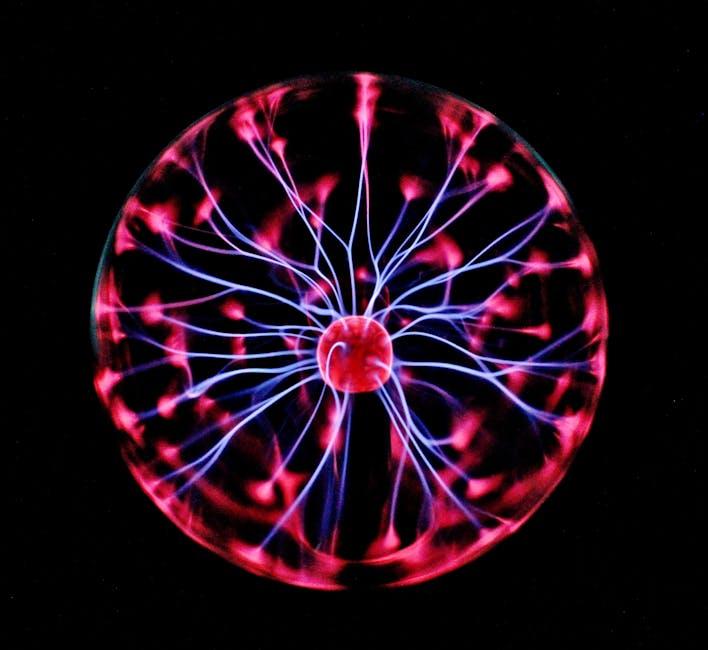In the realms of scientific exploration, certain discoveries stand out like beacons of insight, shedding light on the intricate workings of our world. One such luminary figure is James Lovelock, a visionary whose discoveries have reshaped our understanding of the Earth and its interconnected systems. Delving into the enigmatic realms of Gaia theory, Lovelock’s profound insights have sparked a revolution in environmental science, challenging conventional paradigms and inspiring a new wave of thinking. Join us on a journey through the captivating world of James Lovelock’s discoveries, where science and imagination converge to unveil the mysteries of our planet.
Table of Contents
- Unveiling the Groundbreaking Discovery of James Lovelock
- Exploring the Scientific Impact of Lovelock’s Findings
- Implications and Applications of James Lovelock’s Revolutionary Work
- Future Prospects and Recommendations Based on Lovelock’s Discoveries
- Q&A
- Key Takeaways
Unveiling the Groundbreaking Discovery of James Lovelock
James Lovelock, a renowned scientist, has recently revealed a groundbreaking discovery that is set to revolutionize our understanding of the Earth’s ecosystems. Lovelock’s research unveils a hidden layer of interconnectedness among different components of the environment, shedding light on the intricate web of life on our planet.
This discovery challenges the conventional wisdom and presents a fresh perspective on how we perceive nature. Lovelock’s findings highlight the delicate balance that exists in the natural world, emphasizing the importance of preserving biodiversity and harmonizing with our surroundings. The implications of this discovery are profound, urging us to rethink our relationship with the Earth and strive for more sustainable practices for the benefit of future generations.
Exploring the Scientific Impact of Lovelock’s Findings
In the realm of science, James Lovelock’s groundbreaking discoveries have sparked new avenues of research and reshaped our understanding of the Earth’s intricate systems. His findings on Gaia theory have not only revolutionized ecological science but also challenged traditional perspectives on the planet as a whole.
Through a lens of interconnectedness, Lovelock’s work delves into the symbiotic relationship between living organisms and the environment, highlighting the delicate balance that sustains life on Earth. The essence of Gaia theory lies in the notion that the Earth is a self-regulating organism, where the biosphere and geosphere interact in a dynamic equilibrium, influencing climate, atmosphere, and biodiversity.


Implications and Applications of James Lovelock’s Revolutionary Work
James Lovelock’s groundbreaking work has far-reaching implications that span across various fields, sparking new ideas and applications that challenge conventional thinking. From environmental science to artificial intelligence, Lovelock’s concepts have reshaped our understanding of complex systems and their interconnectedness.
Scientists worldwide are delving into Lovelock’s Gaia hypothesis, exploring how the Earth functions as a self-regulating organism in which living organisms interact with their surroundings to maintain conditions suitable for life. This holistic perspective is revolutionizing ecological studies, urban planning, and even inspiring innovative approaches to sustainability in technology and agriculture. Through Lovelock’s lens, a profound shift in thinking is underway, urging us to reconsider our relationship with the planet and each other.


Future Prospects and Recommendations Based on Lovelock’s Discoveries
In the realm of environmental science, James Lovelock’s groundbreaking discoveries have laid the foundation for a new era of understanding and action. Harnessing the power of Gaia theory, Lovelock’s work has shed light on the interconnectedness of Earth’s systems, urging us to rethink our relationship with the planet. As we delve deeper into Lovelock’s insights, a world of possibilities emerges, offering both challenges and opportunities for shaping the future of our planet.When we reflect on Lovelock’s revelations, a spectrum of recommendations comes into focus, guiding us towards a path of sustainability and stewardship. Embracing holistic approaches to environmental management, such as ecosystem restoration and renewable energy integration, can pave the way for a harmonious coexistence with nature. By fostering innovation, promoting biodiversity conservation, and advocating for policy shifts towards eco-friendly practices, we can honor Lovelock’s legacy and pave the way for a thriving, resilient planet for generations to come.
Q&A
Q&A: Exploring the Enigma of James Lovelock’s DiscoveryQ: Who is James Lovelock and what is his most famous discovery?
A: James Lovelock is a renowned scientist and environmentalist best known for proposing the Gaia hypothesis, which suggests that the Earth functions as a self-regulating organism.
Q: How did James Lovelock’s discovery revolutionize our understanding of the Earth?
A: Lovelock’s Gaia hypothesis challenged traditional views by portraying Earth as a complex and interconnected system that maintains conditions suitable for life.
Q: What are some key implications of James Lovelock’s discovery for environmental science?
A: Lovelock’s work highlights the importance of treating the Earth as a unified ecosystem and underscores the need for sustainable practices to preserve its delicate balance.
Q: How has James Lovelock’s discovery influenced the field of climate science?
A: Lovelock’s insights have prompted further research on planetary systems and climate dynamics, leading to a deeper appreciation for the Earth’s intricate mechanisms.
Q: What can individuals learn from James Lovelock’s discovery for a more sustainable future?
A: Lovelock’s work advocates for a holistic approach to environmental stewardship, emphasizing the interconnectedness of all life forms and the Earth’s natural processes.




0 Comments